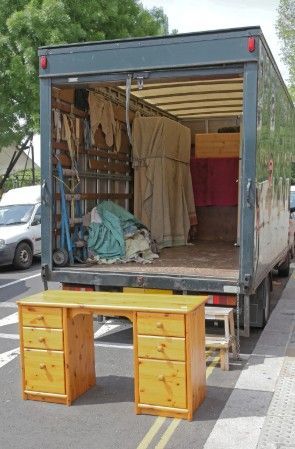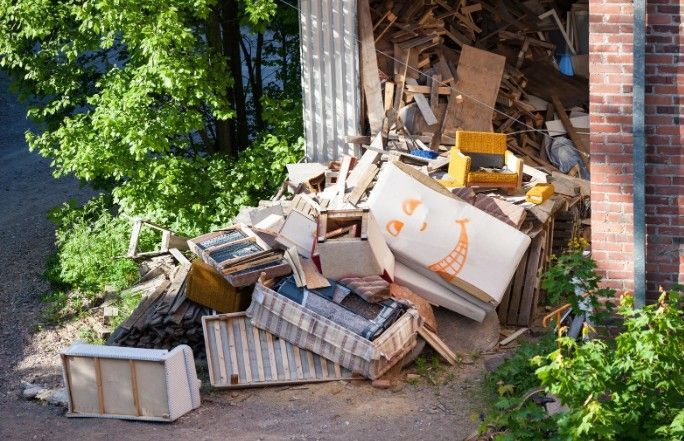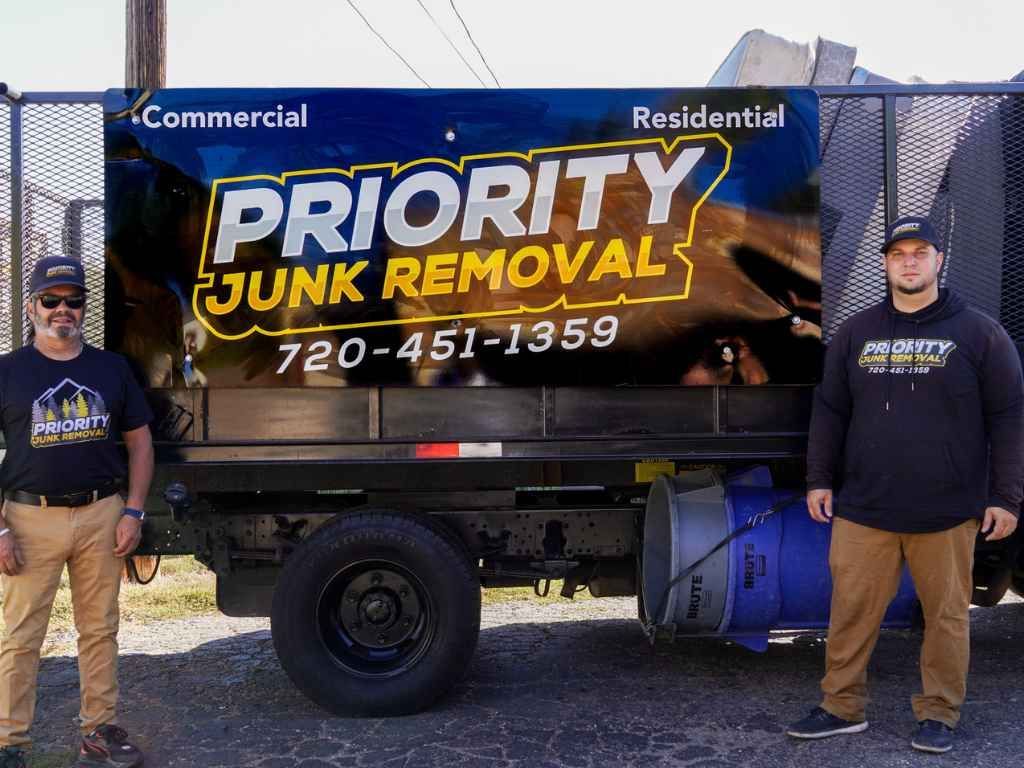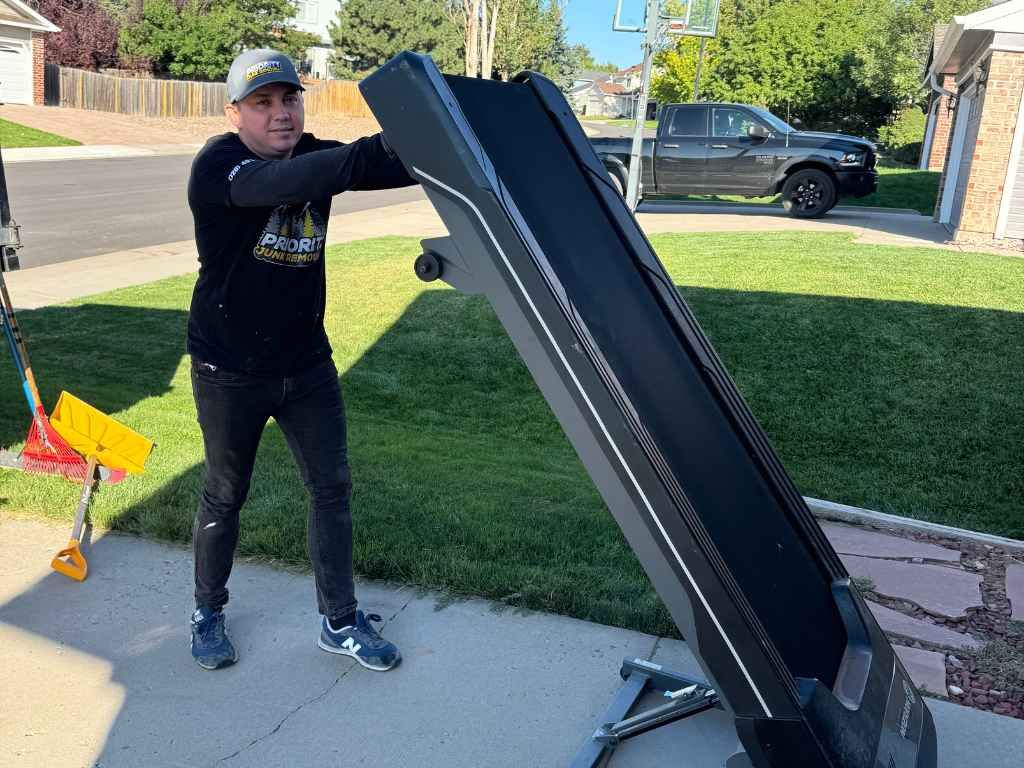Restaurant Junk Removal: Why It Should Be a Priority
Restaurants are vibrant spaces where culinary creativity meets hospitality. But behind the well-set tables and aromatic dishes, there’s an ongoing battle against clutter, waste, and junk. The back-end of restaurant operations often harbors an overwhelming amount of discarded furniture, broken equipment, outdated décor, and mountains of food waste. Left unattended, these elements not only take up valuable space but can also become hazards, impacting cleanliness, efficiency, and even regulatory compliance.
Junk Removal Enhances a Restaurant’s Brand and Customer Experience
First impressions matter in the restaurant industry. Customers don’t just visit a restaurant for food—they seek an enjoyable ambiance, cleanliness, and a welcoming atmosphere. When a restaurant is cluttered with unused furniture, broken signage, or excess decor, it sends a negative message to patrons. A neglected appearance can make customers doubt the hygiene standards of the establishment, leading them to question the quality of the food and service. Even minor clutter in dining areas, patios, or waiting spaces can impact how customers perceive the business.
Removing junk and maintaining a clean, well-organized space elevates a restaurant’s brand and overall customer experience. A polished and clutter-free environment creates a sense of professionalism, reinforcing trust in the establishment. Patrons are more likely to return to a restaurant that prioritizes cleanliness and aesthetic appeal.
What Falls Under Restaurant Junk Removal?
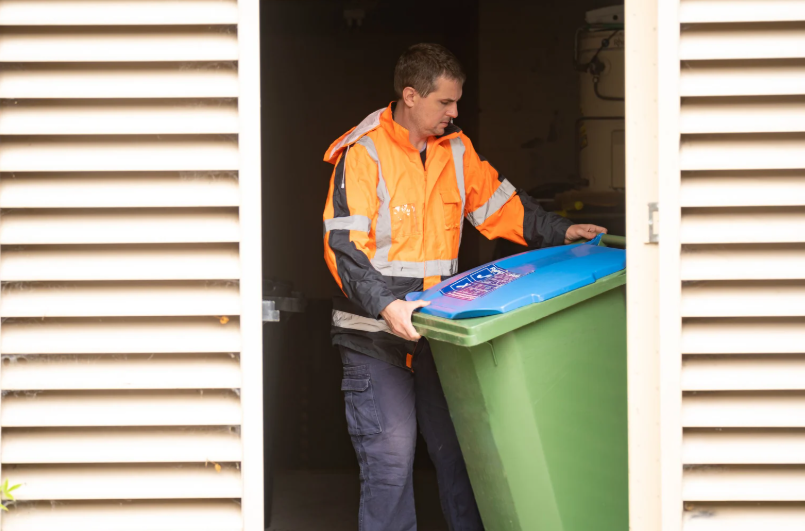
Understanding what needs to be removed from a restaurant setting is essential. Professional junk removal services can handle a variety of unwanted items, including:
- Old Kitchen Equipment: Commercial stoves, fryers, refrigerators, and dishwashers eventually wear out. Rather than letting them sit idle, they should be responsibly disposed of or recycled.
- Broken Furniture: Worn-out chairs, tables, and booths take up space and create an unprofessional atmosphere.
- Construction Debris: Whether it’s from a renovation project or minor repairs, leftover debris can be hazardous.
- Expired and Spoiled Inventory: Old food items and expired supplies should be regularly discarded to maintain freshness and food safety.
- Packaging Waste: Restaurants receive shipments of food and supplies daily, leading to an accumulation of cardboard, plastic, and Styrofoam that needs proper disposal.
- Miscellaneous Junk: Miscellaneous items such as broken décor, old signage, and malfunctioning POS systems also need to be cleared out periodically.
Creating a Healthier Workplace Through Strategic Junk Removal
A cluttered workspace isn't just an inconvenience—it’s a serious health risk. Piled-up junk, whether in storage areas, kitchens, or staff break rooms, can accumulate dust, mold, and bacteria. These contaminants pose respiratory hazards for employees, potentially leading to allergies, respiratory infections, and other health issues. Additionally, neglected waste can attract pests such as cockroaches, rats, and flies, which create an unsanitary environment that threatens both employee and customer health.
By implementing a consistent junk removal strategy, restaurants can ensure a healthier workspace for their employees. A clean environment not only reduces the risk of illness but also boosts morale and productivity. When employees feel comfortable in their workplace, they work more efficiently and with greater enthusiasm.
How to Implement a Restaurant Junk Removal Strategy
To ensure junk doesn’t pile up, restaurants should establish an ongoing junk removal plan. Here are some actionable steps:
- Conduct Regular Audits: Every restaurant should have a system for assessing clutter regularly. Monthly or quarterly audits can identify unnecessary items that need removal.
- Sort and Segregate Waste: Separating waste into categories—recyclables, donations, disposables—makes the junk removal process more efficient. Partnering with waste management services ensures proper sorting and eco-friendly disposal.
- Schedule Professional Pickups: Rather than waiting for waste to accumulate, setting up a routine junk removal schedule prevents overwhelming clutter. Many professional services offer flexible scheduling to accommodate business hours.
- Encourage Staff Participation:l Training staff to identify and report clutter can help keep junk levels under control. When employees actively participate in waste management, the restaurant stays cleaner and more organized.
- Implement Preventive Measures: Avoid accumulating junk by making strategic purchasing decisions. Investing in high-quality, durable equipment minimizes frequent replacements. Additionally, adopting a minimalist approach to restaurant décor prevents unnecessary clutter.
Eliminating Restaurant Clutter Transforms Operations and Enhances Efficiency
A restaurant’s success is not just about great food and service—it’s also about maintaining a well-organized and clutter-free space. Unwanted junk, whether broken equipment, old furniture, or excess packaging, can disrupt the smooth flow of daily operations. When workstations are packed with unnecessary items, chefs struggle to move efficiently, staff members waste time navigating around obstacles, and the overall service slows down.
Clutter not only reduces productivity but can also lead to increased stress among employees, negatively impacting their performance. By prioritizing junk removal, restaurant owners can reclaim valuable space and optimize workflow. A well-organized environment allows staff to function without hindrance, creating a seamless and stress-free workspace.
The Consequences of Neglecting Junk Removal
Restaurants generate significant amounts of waste daily. Whether it’s expired inventory, broken appliances, or outdated furnishings, accumulation can lead to a range of problems. Here’s why ignoring junk removal can spell disaster:
- Health and Sanitation Risks: A cluttered restaurant is a breeding ground for pests and bacteria. Piles of discarded materials, food scraps, and non-operational equipment can attract rodents and insects, creating a health hazard. Additionally, excess junk can make routine cleaning difficult, allowing grime and mold to accumulate. The last thing any restaurant needs is a failed health inspection due to unsanitary conditions caused by unchecked clutter.
- Fire Hazards: Old equipment, stacks of unused materials, and cluttered storage areas pose significant fire risks. Electrical malfunctions or improper disposal of flammable materials can lead to a devastating fire. Professional junk removal services ensure that hazardous materials are handled properly and fire hazards are minimized.
- Space Constraints and Operational Inefficiency: Every square foot in a restaurant is valuable real estate. Accumulated junk can block walkways, reduce kitchen workspace, and interfere with storage efficiency. When excess clutter gets in the way, kitchen staff struggle to move swiftly, impacting food preparation and service speed.
- Regulatory Compliance Issues: Health and safety regulations impose strict waste disposal and sanitation guidelines. Non-compliance can lead to hefty fines, legal consequences, or even closure. Regular junk removal helps businesses stay compliant with industry regulations, avoiding unnecessary financial and reputational damage.
The Hidden Costs of Neglecting Restaurant Junk Removal
Allowing junk to accumulate in a restaurant doesn’t just affect cleanliness and efficiency—it also has hidden financial consequences. Cluttered workspaces slow down operations, leading to longer wait times, lower table turnover, and decreased revenue. Additionally, restaurants that fail health inspections due to excessive junk may face costly fines or even temporary shutdowns, significantly impacting business profitability. Junk-related hazards such as fire risks or workplace injuries can also lead to legal liabilities, resulting in unexpected expenses.
Beyond the immediate financial impact, failing to remove junk can damage a restaurant’s long-term reputation. Negative customer reviews about cleanliness or clutter can deter potential patrons, reducing foot traffic and profitability. The cost of hiring a professional junk removal service is minimal compared to the potential losses a restaurant may face due to negligence. Taking a proactive approach to junk removal ultimately safeguards a restaurant’s financial health while maintaining a positive reputation in the industry.
Professional Junk Removal is More Effective Than DIY Cleanup
Many restaurant owners attempt to handle junk removal on their own, thinking it will save money. However, DIY cleanup can be time-consuming, inefficient, and even hazardous. Without the right disposal methods, restaurant staff may struggle to remove bulky equipment, dispose of food waste properly, or manage construction debris safely. Additionally, improper disposal of hazardous materials, such as grease-soaked rags or broken kitchen appliances, can lead to regulatory fines or environmental violations.
Hiring a professional junk removal service ensures that waste is handled efficiently and in compliance with regulations. These experts have the necessary equipment, manpower, and knowledge to dispose of restaurant junk responsibly, whether through recycling, donation, or proper waste management. By outsourcing this task, restaurant owners and staff can focus on core business operations rather than wasting valuable time and energy on junk removal. The convenience and effectiveness of professional services far outweigh the perceived savings of a DIY approach.
Junk Removal Helps Restaurants Reduce Their Environmental Impact
The restaurant industry generates a massive amount of waste, from food scraps and packaging to broken equipment and furniture. Without proper disposal methods, much of this waste ends up in landfills, contributing to environmental pollution. Many restaurants fail to recognize the impact their waste has on the environment, but implementing eco-friendly junk removal practices can make a significant difference. Recycling, repurposing, and donating usable items instead of discarding them can help reduce a restaurant’s carbon footprint.
By working with an eco-conscious junk removal service, restaurants can ensure their waste is managed sustainably. Professionals can separate recyclable materials, dispose of hazardous waste correctly, and even coordinate donations to local charities. This not only benefits the environment but also enhances the restaurant’s public image. Customers today prefer businesses that prioritize sustainability, and adopting greener waste management practices can be a key differentiator in a competitive industry.
Conclusion
Restaurant junk removal is an essential aspect of maintaining a safe, efficient, and compliant business. Clutter and waste buildup can lead to serious health hazards, regulatory fines, and decreased operational efficiency. Prioritizing professional junk removal services ensures that restaurant spaces remain clean, organized, and hazard-free.
For restaurants looking for a trustworthy and efficient junk removal service, Priority Junk Removal is the ideal choice. Conveniently located at 6091 South Spotswood Street, Littleton, Colorado 80120, United States, they offer tailored solutions to help businesses maintain cleanliness and compliance. Call 720-451-1359 or email priorityjunkremoval@gmail.com to schedule a pickup and experience a hassle-free junk removal process today.

